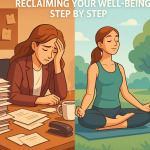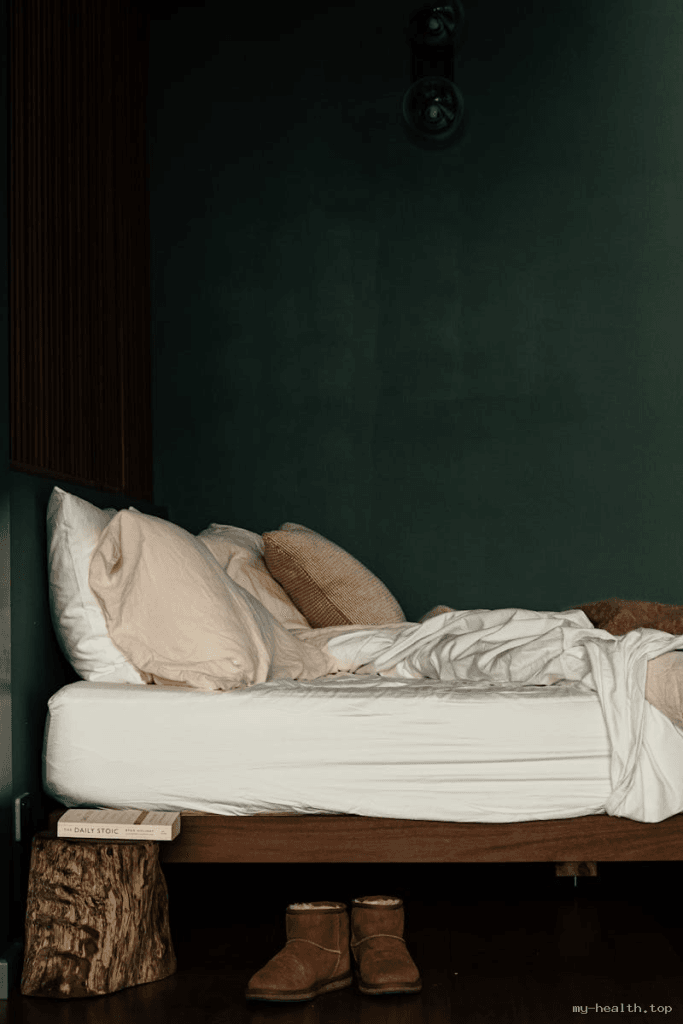This article is for informational purposes only and is not a substitute for professional medical advice. Always consult your healthcare provider for personal recommendations.
What Are Sleep Disorders?
Sleep disorders encompass a range of conditions that disrupt normal sleep patterns, affecting your ability to fall asleep, stay asleep, or achieve restorative sleep. These disorders can lead to daytime fatigue, mood changes, and impaired functioning, making understanding their nature crucial for effective treatment and improving overall health. According to the National Sleep Foundation, nearly 70 million Americans suffer from sleep disorders, highlighting the importance of awareness and intervention.
Common Types of Sleep Disorders
1. Insomnia
Insomnia is characterized by difficulty falling asleep, staying asleep, or waking up too early. It can be acute (short-term) or chronic (long-term). Factors contributing to insomnia include stress, anxiety, medications, and lifestyle choices. Chronic insomnia may be linked to changes in brain function and neurotransmitter activity, particularly involving gamma-aminobutyric acid (GABA) and melatonin, which regulate sleep-wake cycles. Interestingly, research indicates that insomnia can also exacerbate underlying health issues, creating a vicious cycle that complicates treatment (UpToDate).
2. Sleep Apnea
Sleep apnea involves repeated interruptions in breathing during sleep. The most common type, obstructive sleep apnea, occurs when throat muscles relax excessively, leading to airway blockage. This condition can result in fragmented sleep and decreased oxygen levels, which may contribute to cardiovascular problems over time. Symptoms often include loud snoring and daytime sleepiness. It’s important to recognize that untreated sleep apnea can increase the risk of hypertension, heart disease, and stroke (CDC). The pathophysiology of sleep apnea involves a complex interplay of anatomical factors, such as obesity, and neurological control of breathing, underscoring the need for comprehensive evaluation and management.
3. Restless Legs Syndrome (RLS)
RLS is a neurological condition causing an uncontrollable urge to move the legs, often accompanied by uncomfortable sensations such as tingling or crawling. Symptoms typically worsen in the evening or at night, leading to disrupted sleep. The exact cause of RLS is not fully understood, but it may be related to dopamine dysfunction in the brain, and it can be exacerbated by iron deficiency or chronic conditions like diabetes. Interestingly, RLS can also be hereditary, suggesting a genetic component in some individuals (NHS).
4. Narcolepsy
Narcolepsy is a chronic sleep disorder characterized by overwhelming daytime drowsiness and sudden attacks of sleep. Individuals may also experience cataplexy, a sudden loss of muscle tone triggered by strong emotions. Narcolepsy is believed to involve a deficiency of hypocretin, a neurotransmitter that regulates wakefulness (NHS). This condition can significantly impact daily life, making it essential for individuals to seek appropriate treatment and lifestyle adjustments. The mechanisms behind narcolepsy are still being researched, with ongoing studies exploring the autoimmune aspects of the disorder.
Causes of Sleep Disorders
Understanding the root causes of sleep disorders is essential for effective treatment. Here are some common contributors:
- Genetics: Family history can play a significant role in sleep disorders, particularly in conditions like narcolepsy.
- Medical Conditions: Chronic illnesses such as asthma, arthritis, or depression can disrupt sleep. Conditions like gastroesophageal reflux disease (GERD) can also lead to sleep disturbances.
- Lifestyle Factors: Poor sleep hygiene, irregular sleep schedules, and excessive screen time can negatively impact sleep quality. For instance, exposure to blue light from screens can inhibit melatonin production, making it harder to fall asleep.
- Medications: Certain medications can interfere with sleep patterns, leading to insomnia or other sleep issues. Common culprits include some antidepressants, corticosteroids, and stimulants.
- Psychological Factors: Anxiety, depression, and stress are significant contributors to sleep disorders. They can create a cycle where poor sleep exacerbates mental health issues, leading to further sleep disturbances.
Treatments for Sleep Disorders
Effective treatment for sleep disorders often involves a combination of lifestyle changes, therapy, and medication. Here are some common approaches:
1. Cognitive Behavioral Therapy for Insomnia (CBT-I)
CBT-I is a structured program that helps individuals identify and replace thoughts and behaviors that cause or worsen sleep problems. Research shows it can significantly improve sleep quality and reduce insomnia symptoms (UpToDate). CBT-I typically involves sleep restriction, stimulus control, and cognitive restructuring to address negative beliefs about sleep. A key aspect of CBT-I is its focus on empowering individuals to take control of their sleep habits, making it a valuable long-term solution.
2. Medications
In some cases, doctors may prescribe sleep aids or medications to help manage sleep disorders. These should be used cautiously and typically as a short-term solution. Common medications include benzodiazepines, non-benzodiazepine sleep medications, and melatonin receptor agonists. However, it’s important to consult a healthcare provider to discuss potential side effects and interactions. Additionally, understanding the pharmacokinetics of these medications can help patients make informed decisions about their use.
3. Continuous Positive Airway Pressure (CPAP) Therapy
For those with sleep apnea, CPAP therapy is often recommended. This involves wearing a mask that delivers a steady stream of air to keep the airways open during sleep. While CPAP can be highly effective, some individuals may experience discomfort or difficulty adjusting to the device. Regular follow-ups with a sleep specialist can help optimize therapy. It’s also worth noting that lifestyle modifications, such as weight loss and positional therapy, can enhance the effectiveness of CPAP (American Academy of Sleep Medicine).
4. Lifestyle Changes
Improving sleep hygiene is crucial. This includes establishing a regular sleep schedule, creating a comfortable sleep environment, and limiting caffeine and alcohol intake. Regular physical activity can also promote better sleep. Here are some practical tips:
- Set a consistent bedtime and wake-up time, even on weekends.
- Create a calming pre-sleep routine, such as reading or practicing relaxation techniques.
- Keep your bedroom dark, quiet, and cool to enhance sleep quality.
- Limit exposure to screens at least an hour before bed.
- Avoid large meals, caffeine, and alcohol close to bedtime.
- Consider mindfulness practices or meditation to reduce stress and anxiety before sleep.
Patient Vignette
Meet Sarah, a 34-year-old teacher who struggled with insomnia for years. After consulting with her healthcare provider, she began a CBT-I program. Within weeks, Sarah learned techniques to manage her racing thoughts and establish a calming bedtime routine. She also made lifestyle changes, such as reducing her screen time and creating a more comfortable sleep environment. By incorporating relaxation techniques, she found it easier to wind down. Now, she enjoys restful nights and feels more energized during the day, allowing her to be more present in her teaching role.
Myth vs. Fact
| Myth | Fact |
|---|---|
| Sleep disorders are just a part of aging. | While sleep patterns may change with age, sleep disorders can affect individuals of all ages. |
| All sleep medications are safe for long-term use. | Many sleep medications can lead to dependence and have side effects; they should be used under medical supervision. |
| You can catch up on sleep during the weekends. | Irregular sleep patterns can disrupt your circadian rhythm, making it harder to maintain consistent sleep quality. |
| Snoring is harmless. | While not all snoring indicates sleep apnea, it can be a sign of airway obstruction and should be evaluated by a healthcare professional. |
| All sleep disorders are psychological. | While psychological factors can contribute to sleep disorders, many have physiological or neurological origins that require medical attention. |
Frequently Asked Questions
What are the signs of a sleep disorder?
Common signs include difficulty falling asleep, frequent waking during the night, excessive daytime sleepiness, and irritability. Other symptoms may include morning headaches or difficulty concentrating. If you notice a pattern of these symptoms, it may be time to seek help.
How can I improve my sleep hygiene?
Establish a regular sleep schedule, create a calming bedtime routine, limit screen time before bed, and ensure your sleep environment is dark and quiet. Consider using blackout curtains and white noise machines to enhance your sleep setting. Additionally, be mindful of your diet and avoid stimulants close to bedtime.
When should I see a doctor about my sleep problems?
If you experience persistent sleep issues that affect your daily life, it’s essential to consult a healthcare provider. Signs that warrant a visit include chronic fatigue, loud snoring, or episodes of stopped breathing during sleep. Early intervention can lead to better management of the disorder.
Are sleep disorders treatable?
Yes, many sleep disorders are treatable through therapy, lifestyle changes, and medications when necessary. Early intervention often leads to better outcomes, allowing individuals to reclaim their sleep and improve their quality of life.
Can sleep disorders lead to other health issues?
Yes, untreated sleep disorders can increase the risk of conditions such as obesity, diabetes, cardiovascular disease, and mental health disorders. Prioritizing sleep health is crucial for overall well-being, and addressing sleep disorders can have a positive ripple effect on various aspects of health.
Key Takeaways
- Sleep disorders affect millions and can significantly impact daily life.
- Common types include insomnia, sleep apnea, RLS, and narcolepsy.
- Treatment options range from therapy to lifestyle changes and medications.
- Cognitive Behavioral Therapy for Insomnia (CBT-I) is highly effective.
- Improving sleep hygiene can enhance sleep quality and overall health.
References
- PubMed: Cognitive Behavioral Therapy for Insomnia
- CDC: Sleep and Sleep Disorders
- NHS: Sleep Disorders
- UpToDate: Management of Insomnia
- WHO: Sleep Disorders Overview
- National Sleep Foundation: Understanding Sleep Apnea
- Mayo Clinic: Restless Legs Syndrome
- American Academy of Sleep Medicine: Narcolepsy Guidelines
- American Sleep Association: Insomnia Treatment Options








Post a comment